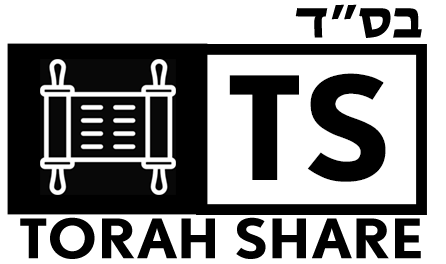March 24, 2022
The first man and woman ate fruits and vegetables—not animals—in the Garden of Eden. It was only later, after the Flood during the time of Noah, that G-d allowed mankind to eat meat.
We cannot understand the exact connection between the sins of mankind and the subsequent permission to eat meat, but we do know that eating meat is a concession that G-d made. The ideal state of humanity is to be vegetarian.
One suggested reason for this concession is that humanity has an inclination for aggression and cruelty. Humans were not created cruel; they incorporated the characteristic over a period of time. And now that we are challenged with this inclination, we have to figure out how to sublimate it and eventually overcome it.
One way is through the consumption of meat. There is something cruel and vicious about eating meat; it is a way of releasing aggression. But sometimes people have a craving for it. Cravings are really our efforts to express and satisfy a need. Better we satisfy our need for aggression by eating meat than by doing something harmful to people, the Torah grants. Better we not have the urge for cruelty and aggression in the first place, but it is a reality that we now have to deal with and work to overcome.
Judaism does not advocate complete suppression of our negative urges rather it gives us outlets to sublimate them while guiding us to gradually overcome them. Therefore, when we crave, we must satisfy the craving in some way while working towards kicking the habit.
Take a drug addict, for example. There are two approaches to treating the addiction. One method is cold turkey—just stay off the stuff and go through an excruciating period of withdrawal. The other approach is measured withdrawal, which looks like hospital-sanctioned drug abuse but is really medical intelligence. To wean the addict, the doctors slowly administer, each day, decreasing amounts of the drug until the addiction is gone. If a person who did not know anything about this method walked into the hospital, from his limited perspective he would conclude that this place promotes drug abuse as an ideal.
In the same way, there are Torah laws that do not express the ideals of Judaism but exist as a way to reach those ideals. In the case of consuming meat, whether it is to satisfy a craving and sublimate the need for aggression or some other divine reason unknown to us, the Torah temporarily concedes and allows us to do it in the interest of helping us eventually overcome the urge and become vegetarians.
P.S.
People who are already vegetarian should not pride themselves and think that this is a sure sign that they are more spiritually and ethically evolved than anyone else.
How Ideal is the Law?
The Talmud states: “G-d says, ‘I created the evil inclination and I created Torah as its antidote” (Babylonian Talmud, Bava Metzia 85a). The Torah is an antidote to our negative and destructive inclinations. Therefore, the Torah may sometimes appear to be sanctioning some type of amoral behavior, but in fact, it is simply employing a realistic approach in order to empower people to stop doing what they otherwise may not have had the power to overcome on their own.
Keeping this essential principle in mind, we can now explore the meaning of eating kosher and some of the seemingly odd kosher laws.
Although, as we mentioned, Torah laws do not always indicate the ideal, without a doubt they outline a way towards reaching the ideals. Therefore, incorporated within such Torah laws are windows to the future.
The laws regarding kosher slaughter are one example. Although G-d allowed humanity to eat meat, one of the “Seven Laws of the Descendants of Noah” is the prohibition against eating a limb ripped off from a live animal. G-d deemed that although humanity needed an outlet for their cruelty this is too much.
As the world evolves G-d chose the Jewish people to become a model of ethical excellence for the rest of the world. Therefore, He placed upon them even more restrictions regarding the consumption of meat.
The laws of Kashrut generate an atmosphere of discomfort to remind us that eating meat is not ideal and to preserve, as much as possible, our humanness while we sublimate our cruel urges. Therefore, we cannot feel free to eat any animal we choose, certainly not those of a wild meat-eating nature. We cannot eat meat before removing its blood. And we must cover its blood and maintain a healthy sense of embarrassment. If we are not slaughtering our own meat then we must purchase only meat that we know has been slaughtered in this most uncomfortable and humane way.
If you are interested in more videos from this Rabbi please visit this YouTube Channel:
https://www.youtube.com/channel/UCNbVf7ibtvSJTFGUOz4pf1g
If you are interested in receiving these Torah-Share.com posts via email please subscribe here: http://torah-share.com/subscribe/

